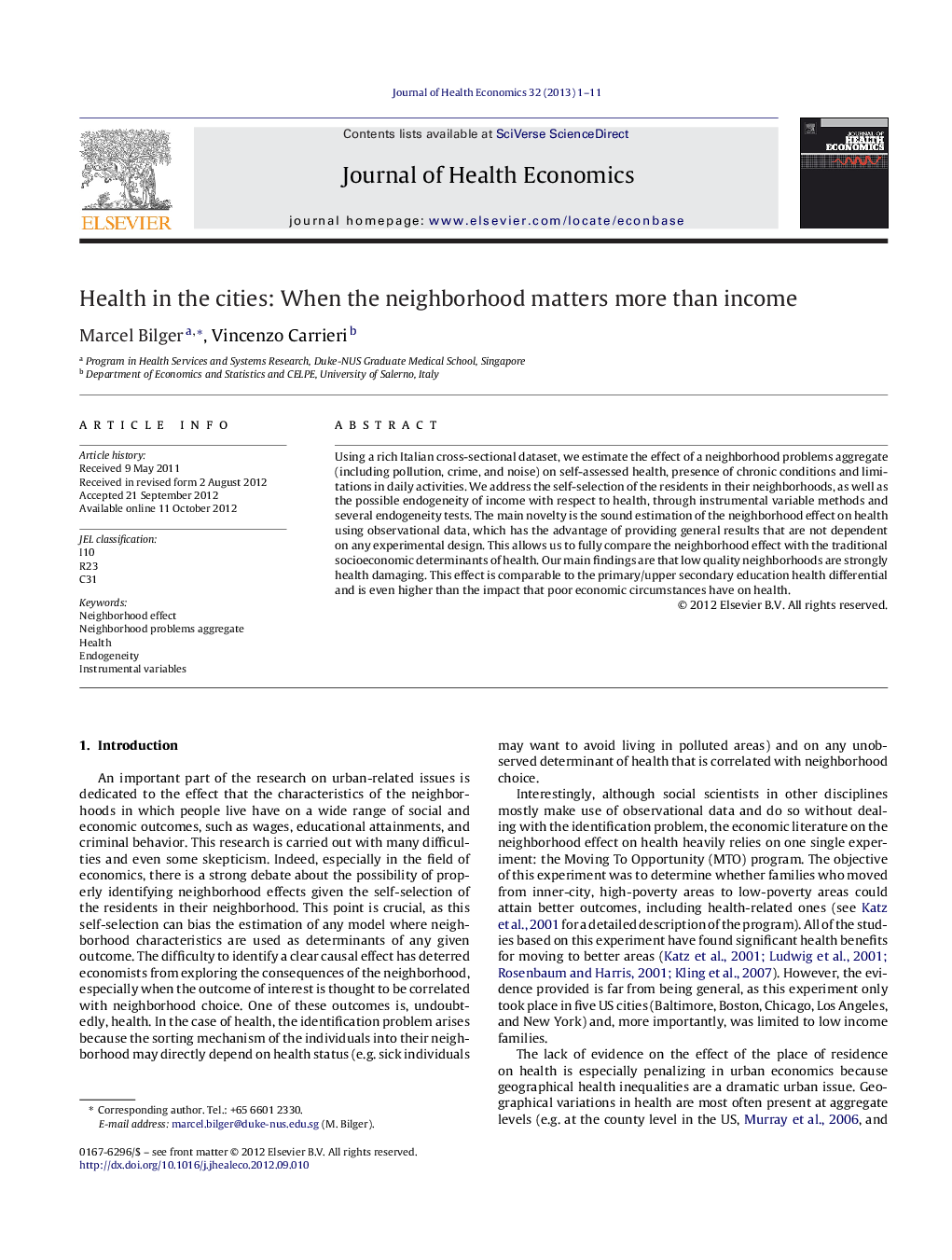| Article ID | Journal | Published Year | Pages | File Type |
|---|---|---|---|---|
| 961444 | Journal of Health Economics | 2013 | 11 Pages |
Abstract
Using a rich Italian cross-sectional dataset, we estimate the effect of a neighborhood problems aggregate (including pollution, crime, and noise) on self-assessed health, presence of chronic conditions and limitations in daily activities. We address the self-selection of the residents in their neighborhoods, as well as the possible endogeneity of income with respect to health, through instrumental variable methods and several endogeneity tests. The main novelty is the sound estimation of the neighborhood effect on health using observational data, which has the advantage of providing general results that are not dependent on any experimental design. This allows us to fully compare the neighborhood effect with the traditional socioeconomic determinants of health. Our main findings are that low quality neighborhoods are strongly health damaging. This effect is comparable to the primary/upper secondary education health differential and is even higher than the impact that poor economic circumstances have on health.
Related Topics
Health Sciences
Medicine and Dentistry
Public Health and Health Policy
Authors
Marcel Bilger, Vincenzo Carrieri,
